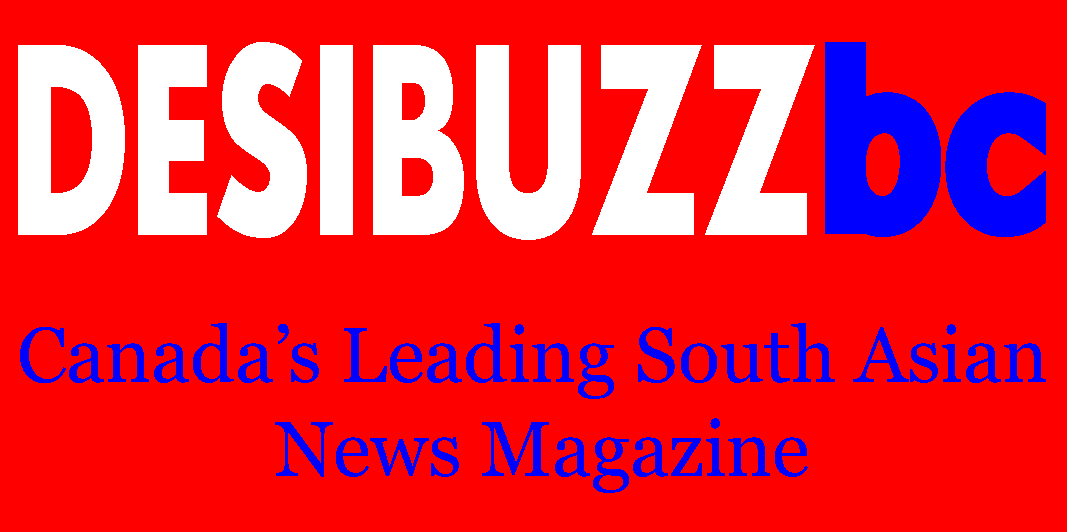DESIBUZZCanada
Events Listings

International Day Of Yoga To Be Virtually Celebrated Saturday At 4pm

CANCELLED: Coronavirus Fears Kills Surrey’s Vaisakhi Day Parade

ADVERTISE WITH US: DESIBUZZCanada Is The Most Read South Asian Publication Online

SURREY LIBRARIES: Get Technology Help At Surrey Libraries

WALLY OPPAL: Surrey Police Transition Update On Feb. 26

GONE ARE THE DAYS - Feature Documentary Trailer

Technology Help At Surrey Libraries

Birding Walks

Plea Poetry/short Story : Youth Contest

International Folk Dancing Drop-in Sessions
Wso Alleges India Has Already Began Campaign To Interfere In Canada’s Upcoming Elections
- July 12, 2019

POSTED BY: DESIBUZZCANADA JULY 12, 2019

Sikhs For Justice Sue India In A $2.5 Million Defamation Lawsuit!
India’s obsession to teach Canada and Prime Minister Justin Trudeau a lesson because he won’t take action against peaceful and law abiding Sikhs, even those who want Khalistan peacefully, and uphold Canadian democracy is forcing newly re-elected Narendra Modi government to courting Conservatives like former Prime Minister Stephen Harper and even current Conservative leader Andrew Scheer, who went on a jaunt to meet Modi on on-on-one meetings last year, and using “Bought” Indian media to launch propaganda attacks against Canadian Sikhs, the most generous community in Canada.
By DESIBUZZCanada With News Files
OTTAWA — India’s obsession to teach Canada and Prime Minister Justin Trudeau a lesson because he won’t take action against peaceful and law abiding Sikhs, even those who want Khalistan peacefully, and uphold Canadian democracy is forcing newly re-elected Narendra Modi government to courting Conservatives like former Prime Minister Stephen Harper and even current Conservative leader Andrew Scheer, who went on a jaunt to meet Modi on on-on-one meetings last year, and using “Bought” Indian media to launch propaganda attacks against Canadian Sikhs, the most generous community in Canada.
The World Sikh Organization of Canada (WSO), who has been warning Canadian authorities of Indian interference in Canadian Sikh affairs over the last year when India stepped up anti-Sikh propaganda attacks in Indian and Canadian media, especially coming off the awful trip Trudeau and his Ministers took to India in early 2018.

This week WSO put out another warning that India has already stepped up attacks against Canadian Sikhs in Indian newspapers with a number of false and highly negative stories against the Canadian Sikh community, all designed to escalate to the allegedly planned interference in the upcoming Canadian elections.
The recent trip by Harper, who attended an Indian government function to receive an honour, is a perfect example of India’s leaning towards the Conservatives to execute their anti-Sikh agenda.
Previously Harper, like Trudeau said last year, was quick to point out during his India trip that Canadian government can’t silence Sikhs on wanting Khalistan peacefully as well as highlighting India’s human rights abuses, which really irks India as it’s one of the worst human rights abusers and has been silent as the persecution of minorities, especially Muslims now, continues in India.
But Harper was singing a different tune at the pro-India event, saying Canada needs to condemn Khalistanis, who want an independent homeland. But the fringe Khalistani Groups’ peaceful means to get the so-called Khalistan is covered by Canadian democracy and they have full right to air their opinions or protests as well as highlight abuses in India by police and the state against minorities.
Harper wasn’t asked about free speech and strong Canadian democratic institutions that allow smaller fringe groups to speak out on issues that are covered by the freedom of expression in Canadian democracy. India’s refusal to respect freedom of speech of Canadian Sikhs is pulling it’s “rogue” agents into a dark pit of it’s own withering institutions of lawlessness.
The WSO told Canadian Press this week that they fear the Indian government is trying to interfere in the upcoming federal election after a flurry of Indian media articles accusing Canadian Sikhs of inciting violence and militancy in Punjab and the Canadian government of supporting them.

Balpreet Singh, the lawyer for the World Sikh Organization in Canada, told Canadian Press a number of stories in Indian media in June and July have cited Indian government sources that Canadian Sikhs are behind terrorist activities targeting India. He believes the looming federal election is driving the stories because the Indian government wants to quiet the politically influential Sikh community in Canada.
“There are going to be a lot of Sikhs running for political office and it’s to ensure the Sikh community is seen through a paradigm of extremism, of suspicion, essentially to marginalize Sikhs in Canada,” he said.
WSO said in a subsequent press release that experts agree that foreign interference can take many different shapes and forms, including through media manipulation and interference within Diaspora communities “like our very own.”
“We have been raising red flags over Indian interference in Canadian affairs regularly with the media and government, including in multiple caucus meetings with Members of Parliament and leadership across all party lines,” WSO said.
There were 19 Sikh MPs elected in 2015, most of whom are seeking re-election. Singh said these articles undermine Sikhs within Canada.
Singh said there is simply no evidence of any extremism or terrorist elements in Canada’s Sikh community.

A government report last fall listed Sikh extremism as one of five major terrorist threats to Canada, though it acknowledged the number of actual incidents in Canada associated with it is extremely limited. After an outcry from groups that included the World Sikh Organization, Public Safety Canada revised the report to talk about extremists who support violent means to establish an independent state within India, instead of naming Sikhs as a community, reported Canadian Press.
Many of the recent articles cite unnamed Indian government sources but some also directly quote Amarinder Singh, the chief minister of Punjab state, who has accused members of the Canadian cabinet of being Khalistani sympathizers.

In late June, Amarinder Singh accused the Canadian government of “overt and covert support” of the Khalistani movement, citing a 2010 Canadian report on the 1985 Air India bombing. Singh alleges that report proves Canada was complicit in not preventing the attack and suggested there should be United Nations sanctions against Canada to pressure the government here “to put an end to the use of its soil to unleash terror against India.”
In 2018, Singh met with Prime Minister Justin Trudeau during his troubled state visit to India and gave Trudeau a list of alleged terror suspects in Canada to investigate. Singh said the fact nothing has happened to the people on the list is proof of Canada’s complicity in pro-Khalistan activities.
Another article in the Hindustan Times, on July 6, suggests Canada’s relationship with India will remain icy unless the Canadian government condemns any pro-Khalistan movements entirely. That article cites unnamed sources saying India’s new foreign minister, Subrahmanyam Jaishankar, issued that warning both to Canada’s high commissioner in India on June 19 and again to Canadian Foreign Affairs Minister Chrystia Freeland when the two met on the sidelines of the G20 leaders’ summit in Japan on June 28.

Canadian officials describe the meeting only as an introduction between Freeland and Jaishankar, who was only appointed to the post in May. Freeland’s tweet about that meeting said “Canada and India are close partners with deep historical and people-to-people ties” and that it was “wonderful” to meet Jaishankar.
One Canadian organization is trying to fight back against the allegations in court. Sikhs for Justice, a Toronto-based human rights organization promoting the right of Sikhs to have their own independent state, filed a defamation suit in Ontario Superior Court July 8 alleging the Indian government was the source of at least three stories that falsely accuse Sikhs for Justice of colluding with the Pakistani intelligence agency to target Indian police officers and military personnel.

The Indian government has not yet responded to the $2.5-million libel suit, nor did a spokesman from the Indian High Commission respond to a request for comment from The Canadian Press.
“We want to show to the Canadian community that these are lies,” said Jatinder Singh Grewal, the international policy director for Sikhs for Justice.
In March 2018, Canada’s deputy ministers were warned about the risks the large Chinese and Indian communities in Canada are “vulnerable to foreign state-led campaigns that directly or indirectly work to influence diaspora communities across the country.”
The warning, in a report prepared for deputy ministers attending a retreat on national security, was obtained under the Access to Information Act.
“While the increasing political participation of these communities at all levels of government is both laudable and reflective of the increasing diversity of the Canadian political system, the risk of these communities being influenced, overtly or covertly, by foreign governments with their own agendas cannot be overlooked,” the report reads.
With Files From Canadian Press
























